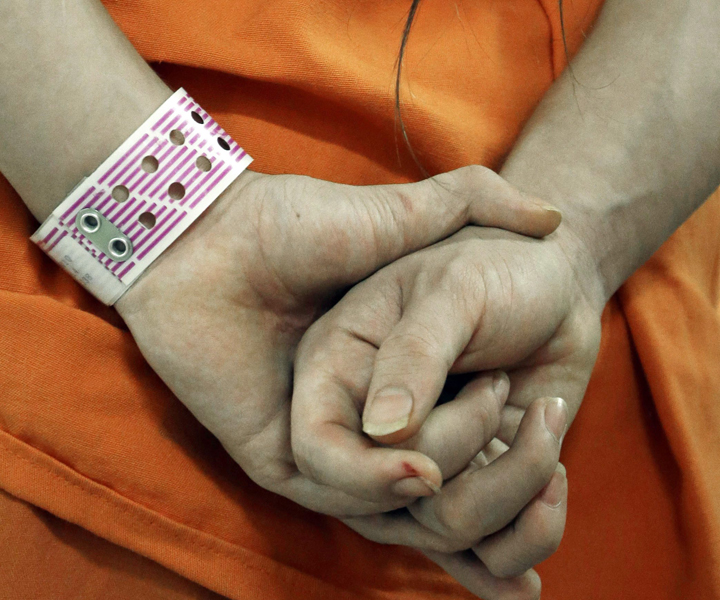OTTAWA – The country’s only legal aid clinic for prisoners wants the federal government to overhaul its policies for transgender inmates and is prepared to go to court over it.

But the Conservatives are still refusing to cover “sex change surgery” for convicted criminals – a directive seemingly at odds with its own department.
Prisoners’ Legal Services, based in Abbotsford, British Columbia, says the government’s policies for transgender prisoners are outdated, discriminatory and put inmates at risk.
The recommendations include allowing transgender inmates to live in institutions opposite their biological sex, as well as updating the criteria for inmates who want to undergo “gender-reassignment surgery,” paid for by the government.
“We’ve recommended that prisoners should be assigned, not based on their genitals, but based on their gender identity,” said lawyer Jennifer Metcalfe, the clinic’s executive director.
“You shouldn’t have to be at constant risk and experience sexual assault in men’s prison as a woman just because you happen to have been born into the wrong body that has a penis attached to it.”
Metcalfe says there are only a handful of people to whom the policy applies, and most are men transitioning to women.
She said in the past eight years she’s worked with six clients in B.C., and estimates similar numbers across the country.
The federal government created a policy for transgender inmates in response to a 2001 human rights tribunal case and a subsequent 2003 federal court ruling.
Currently, transgender inmates who have not had an operation are held in the institutions that correspond to their biological sex.
They are only eligible for surgery after spending one year living as a transgender person in the community – not in prison.
Catherine Latimer, executive director of the John Howard Society, says transgender inmate rights is “a big issue.”
“Certainly, some are vulnerable in certain institutions if they’re presenting as female and in a male facility,” said Latimer, whose organization advocates for humane criminal justice policies.
Latimer added that if an inmate meets certain psychiatric criteria, “I don’t see any reason why they couldn’t be housed in the facility that reflects their state of mind.”
Metcalfe said the issue isn’t about getting surgery but rather allowing inmates to live in the institution of the gender they identify with.
And she said if a transgender client were to come along with a case of discrimination, “then we will pursue it for them.”
‘Sex change surgery’ not essential
The Correctional Service of Canada’s official policy says surgery will be considered if a specialist says it is an essential medical service and if the inmate meets the “real-life test” – which means they have lived as a transgender person for at least a year in the community.
But since 2010, the Conservative government has refused to pay for surgeries, after then public-safety minister Vic Toews argued that “sex change surgery” shouldn’t be covered by taxpayers.
A spokesman for current Public Safety Minister Steven Blaney says that viewpoint has not changed.
“We do not believe that hardworking Canadians should have to pay for sex change surgery for convicted criminals,” the minister’s spokesman, Jean-Christophe De Le Rue, wrote in an email.
“That’s why the former Minister of Public Safety directed the Correctional Service of Canada to not fund such surgeries in the future. Minister Blaney has not changed this directive.”
According to the Gender Reassignment Surgery clinic in Montreal, the cost ranges from $19, 375 for male to female surgery, and $44,000 for female to male transition.
Metcalfe wants the government to change its criteria for the “real-life test,” the method for determining whether someone has gender dysphoria, the medical diagnosis for those who believe they have been born into the wrong body.
The test, set out in medical criteria from 2001, says a person is only eligible for surgery after living as a transgender person for one year in the community. Metcalfe wants it changed to include time spent in prison.
An updated policy from 2011, from the World Professional Association for Transgender Health, says people should not be discriminated against based on where they live.
The legal clinic also wants polices changed so a transgender inmate doesn’t have to share a room with a male prisoner, can order women’s products more easily, and can take private showers.
A CSC spokeswoman said offenders diagnosed with gender dysphoria will continue to be incarcerated in prisons according to their biological sex.
“In accordance to the international standards regarding the management and treatment of individuals diagnosed with gender dysphoria, CSC requires the one-year real life test for inmates requesting certain sex reassignment surgeries,” spokeswoman Chantal Guérette wrote in an email.
Guérette said CSC has a legislative mandate to provide essential health care to inmates, including mental health care that contributes to rehabilitation and reintegration of offenders.
Kim Pate, executive director of the advocacy group Elizabeth Fry Society, said she supports any individual who has a difficult time in prison.
But she said there may be concerns raised by female inmates who may not be comfortable with pre-operative transgender women in prison.
“While I understand they may want to transfer into a prison for women if they’re transitioning, they may not actually have an easy experience of it if they end up being segregated the entire time,” said Pate.



Comments